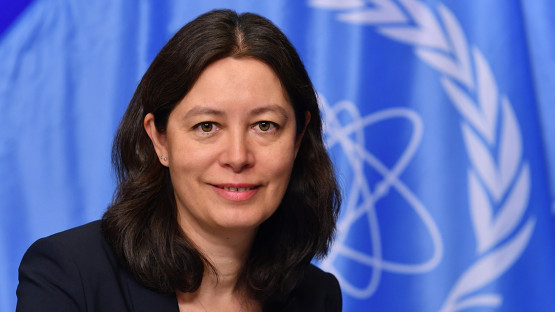IAEA Deputy Head to Visit Tehran for First Time Since Iran Suspended Cooperation
“Until we reach an agreement on a new framework, cooperation will not begin,” Araghchi told reporters, stressing that “no inspections or visits” to nuclear sites were planned during the visit.

ERBIL (Kurdistan24) – The deputy head of the United Nations nuclear watchdog, Lydie Evrard, will arrive in Tehran on Monday for talks with Iranian officials, marking the first such visit since Iran suspended cooperation with the International Atomic Energy Agency (IAEA) last month, AFP reported.
Iranian Foreign Minister Abbas Araghchi said on Sunday that discussions with the visiting IAEA official would center on establishing “a new cooperation framework.”
“Until we reach an agreement on a new framework, cooperation will not begin,” Araghchi told reporters, stressing that “no inspections or visits” to nuclear sites were planned during the visit.
The freeze in cooperation followed a 12-day war with Israel in mid-June, during which Israeli strikes targeted Iranian nuclear and military sites. According to Iranian officials, US forces also participated in attacks on nuclear facilities at Fordo, Isfahan, and Natanz.
Citing the IAEA’s failure to condemn the Israeli and US strikes, Tehran officially halted its collaboration with the agency last month. The escalation also derailed nuclear talks between Iran and the United States, which had resumed in April in the highest-level contact between the two countries since Washington withdrew from the 2015 nuclear agreement in 2018.
Since the conflict, Iran has demanded security guarantees against military action before resuming negotiations with the US. Araghchi confirmed that Tehran has “received messages” from Washington on restarting talks but said “nothing has been finalized.”
On July 25, Iranian diplomats met with officials from Germany, Britain, and France, who have warned they could trigger the so-called “snapback mechanism” — the re-imposition of UN sanctions under the 2015 nuclear deal — by the end of August if no agreement is reached. The option expires in October, and Tehran has warned of consequences if it is activated.
“Our contact with the Europeans is ongoing,” Araghchi said Sunday, adding that no date has been set for the next round of talks.